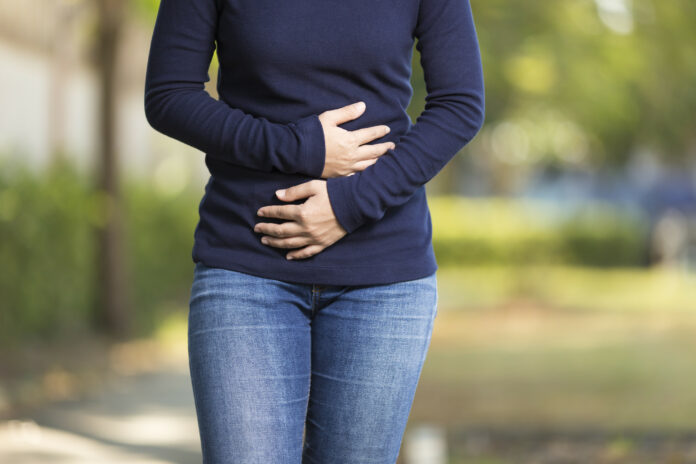When bloated, a person must first examine the types of foods being eaten, gastroenterologist and senior university lecturer at Western Sydney University Vincent Ho says.
Bloating occurs when there is a buildup of gas in the intestines and the stomach. It can be uncomfortable and sometimes painful, depending on the severity. The condition is extremely common and often has causes that aren’t linked to disease.
“Bloating in most people is attributable to intestinal gas, often after eating. Intestinal gas production is influenced by factors such as the particular foods we eat and also the types of bacteria that we have in the gut,” Ho, who goes by the Gut Doctor, told Newsweek.
He went on: “The first thing I would look at in alleviating bloating is to examine the foods that someone is eating. Certain types of carbohydrates such as lactose found in dairy products, fructose found in different fruits such as apples and pears, and the carbohydrates found in legumes and artificial sweeteners are recognized as linked to bloating.”
champja/Getty
These foods are called FODMAP foods, Ho said. FODMAP stands for fermentable oligosaccharides, disaccharides, monosaccharides and polyols, which are all carbohydrates that are hard to absorb into the small intestine.
“I often recommend my patients see a nutritionist for guidance on a low FODMAP diet,” he said.
These short-chain carbohydrates can increase the water volume in the intestine and are fermented by bacteria relatively quickly. This subsequently causes an excess of gas building up.
“Another way that people can help to relieve bloating is through modifying their gut bacteria,” Ho said. “The regular ingestion of live good bacteria—probiotics—through foods such as yogurts, miso and sauerkraut can be quite helpful for some people. Others may get a benefit from consuming commercial probiotics where there is often much higher amounts of healthy bacteria contained in a tablet form.”
While bloating commonly occurs because of diet, there are several conditions that can be linked to regular occurrences.
Bloating can happen because of food intolerances, such as lactose or gluten intolerance. Coeliac disease, an illness resulting from an immune reaction to gluten, can also cause discomfort caused by bloating discomfort.
Other conditions include irritable bowel syndrome, which can cause diarrhea and subsequent constipation, along with uncomfortable bloating and stomach cramps. The hormones produced before and during the menstrual cycle can also lead to bloating in some cases.
Do you have a tip on a science story that Newsweek should be covering? Do you have a question about bloating? Let us know via [email protected].


